Abstract
The Obese strain (OS) of chickens spontaneously develops autoimmune thyroiditis several weeks after hatching, characterized by severe lymphoid infiltration and circulating thyroglobulin antibody. Sundick & Wick (1974) found that the thyroid glands of OS embryos and newly hatched chicks actually incorporated more 131I than normal controls when the parents of both groups were fed a Protamone-supplemented diet. Since this material—an iodinated casein containing thyro-active substances—drastically reduced thyroidal uptake of 131I, several experiments were designed to compare OS and normal chicks free from these effects. In the first experiment the dietary supplementation of OS and normal hens were changed from Protamone to pure thyroxine and triiodothyronine. Their eggs were collected daily and incubated. The hatched chicks were tested for 20-hr 131I uptake and it was determined that 11–18 days after the food switch, the inhibition of uptake by Protamone was reversed, and the newly hatched OS chicks still had a significantly increased 20-hr 131I uptake when compared to the normal controls. Comparison of the offspring of a special flock of OS hens that lays without hormonal supplementation, with the parental Cornell C strain from which the OS is derived, similarly revealed a higher 20-hr 131I uptake by the OS (P<0·005). The increased thyroidal uptake of OS was apparent as early as 4 hr after 131I administration and seemed to be independent of slight variations in the amount of 127I available to the chicks, and also seemed to be independent of maternally derived thyroglobulin antibody vertically transferred into OS chicks.
These results suggest that an abnormality of the OS thyroid gland might be a prerequisite for the spontaneously occurring autoimmune thyroiditis in this strain.
Full text
PDF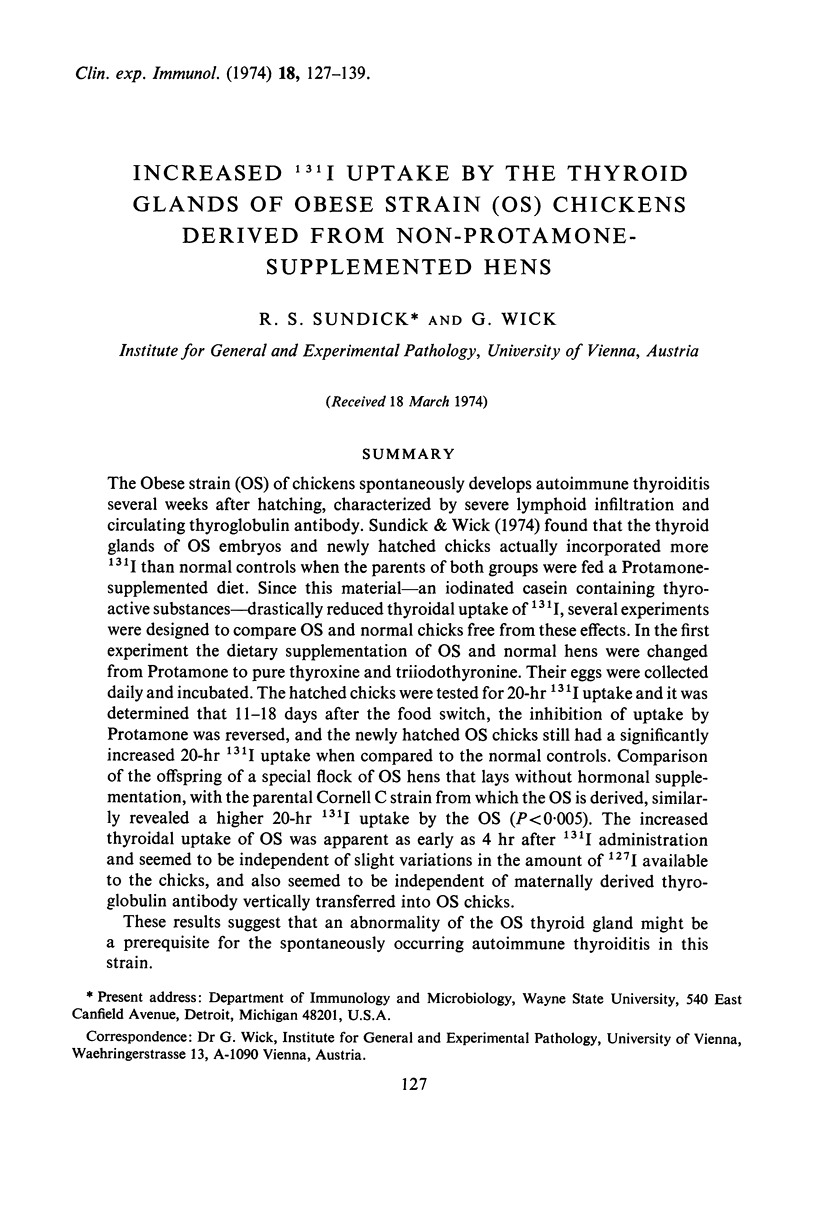
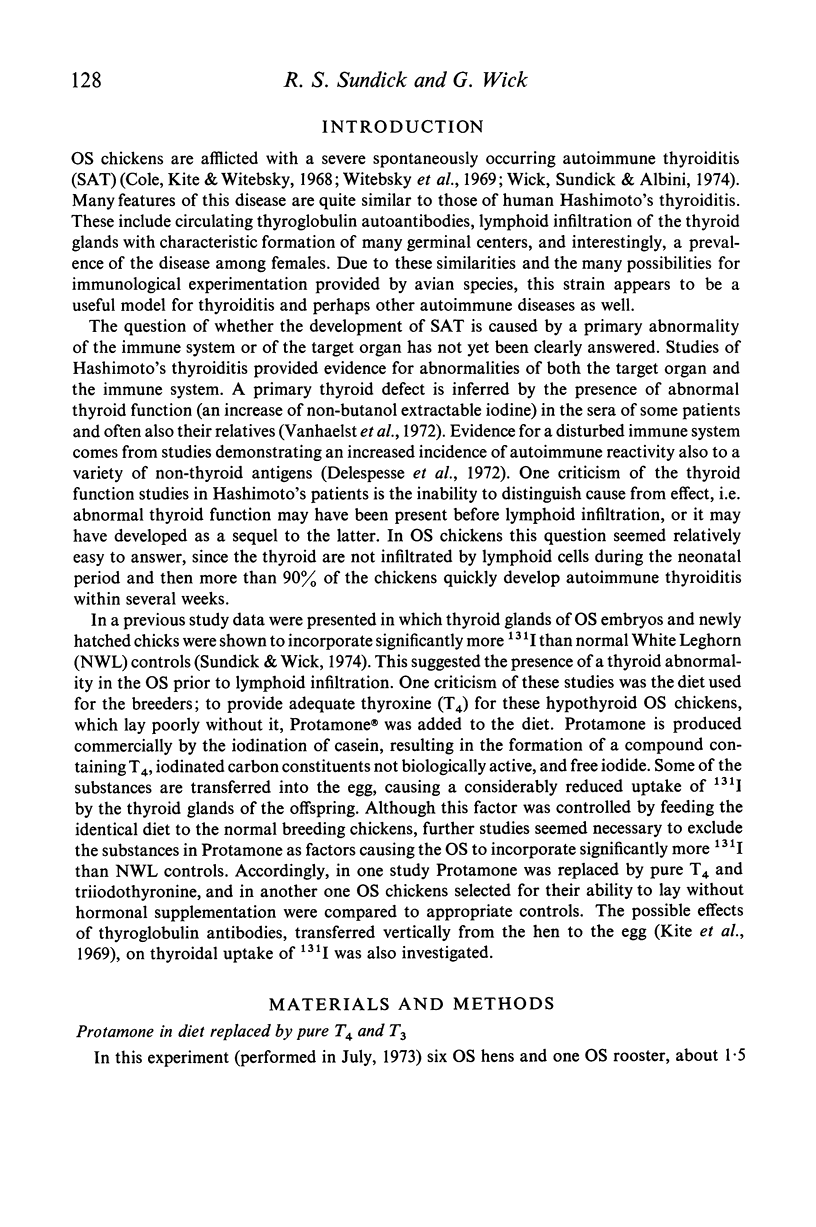
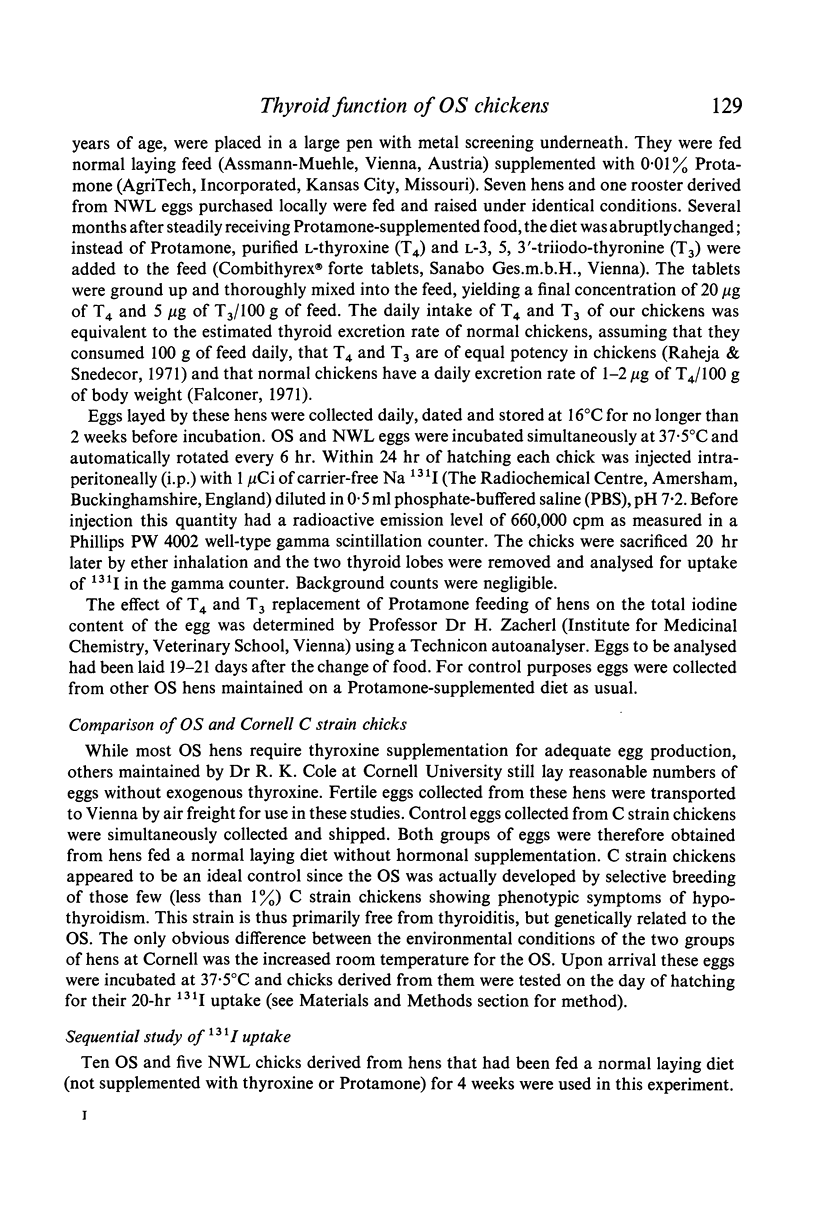
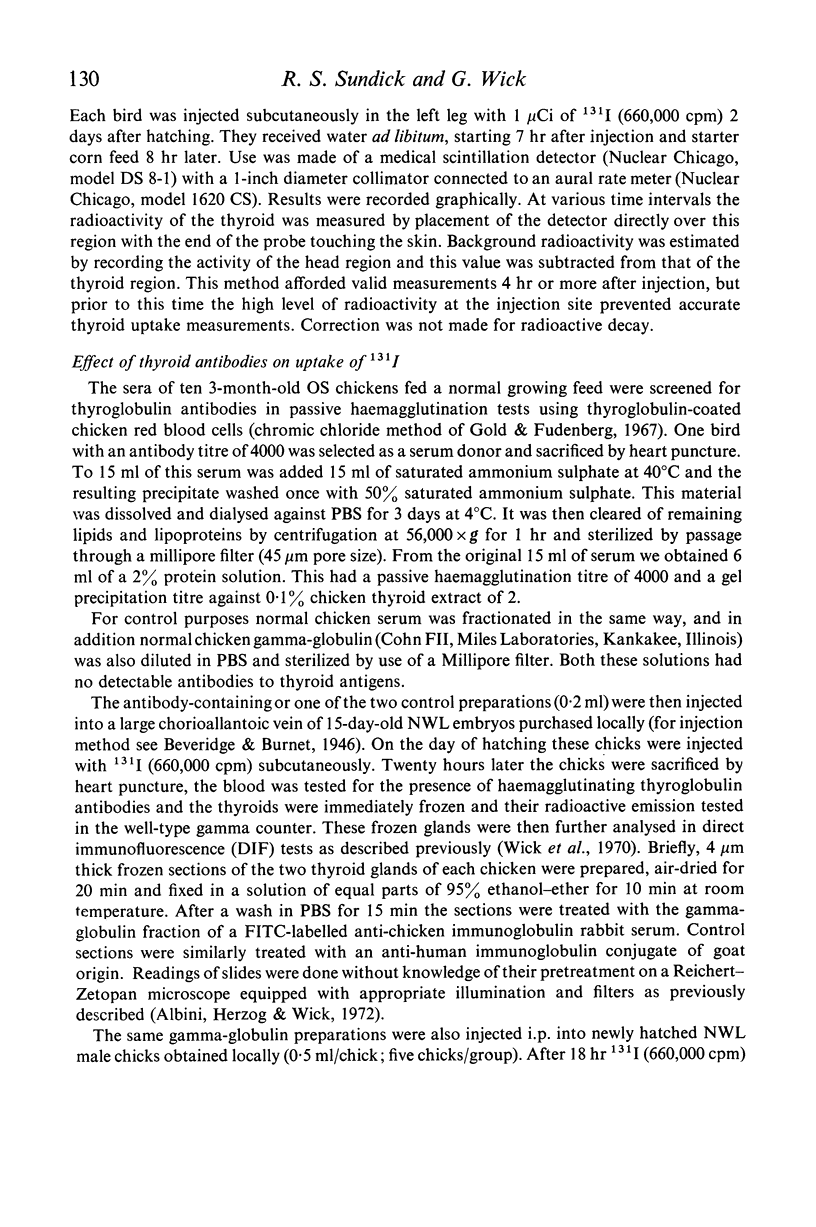
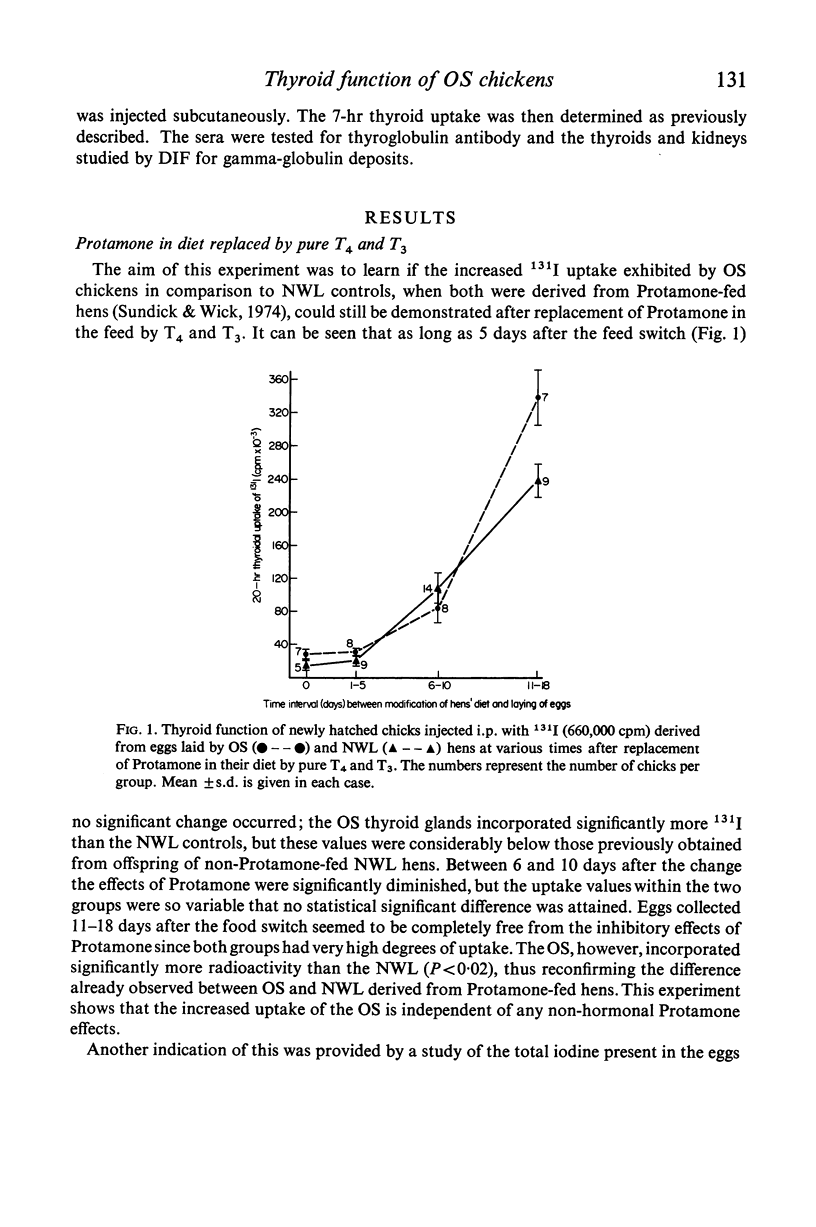
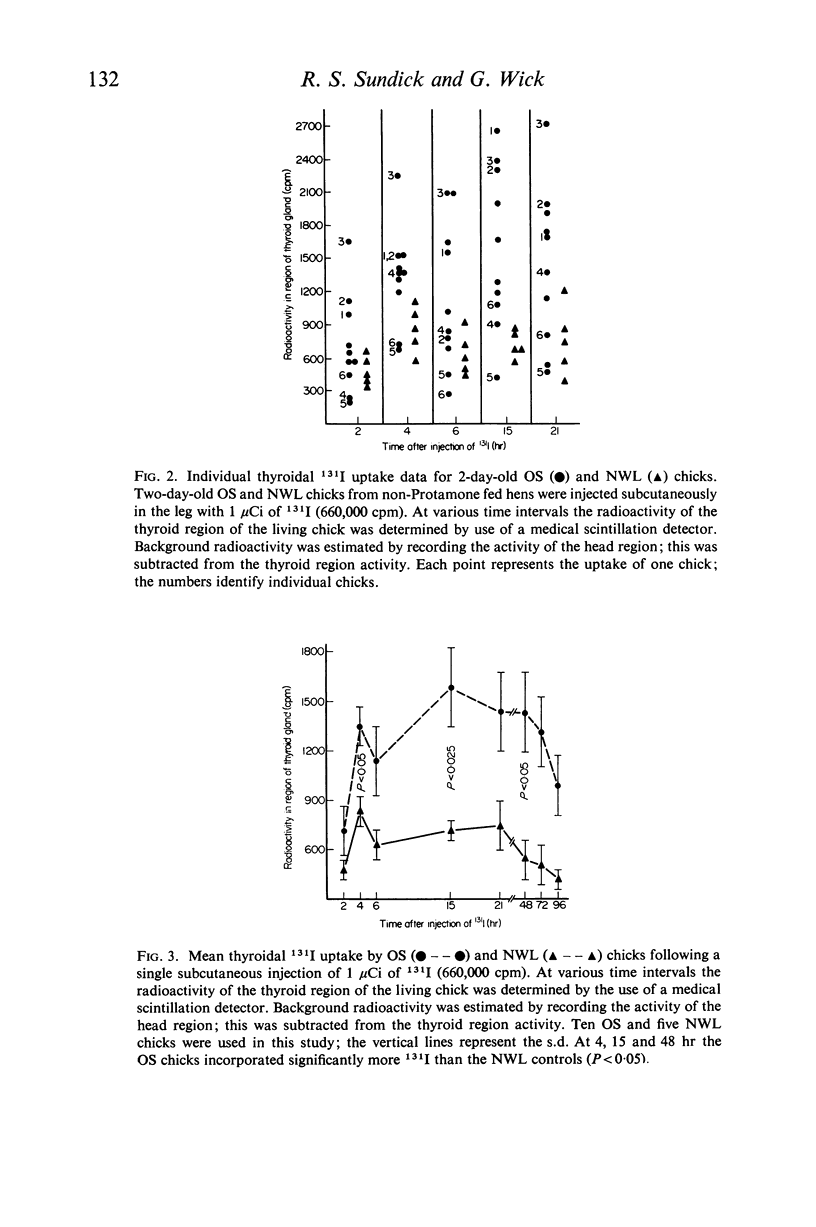
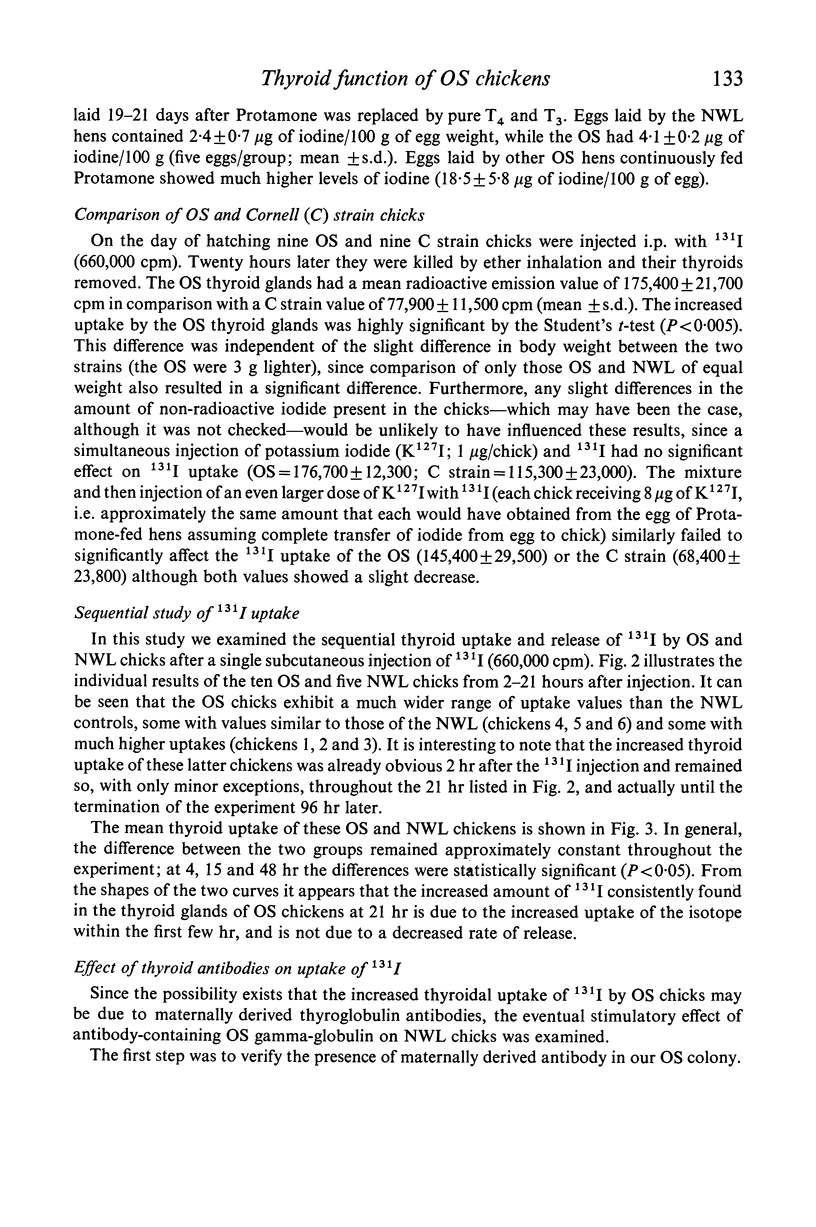
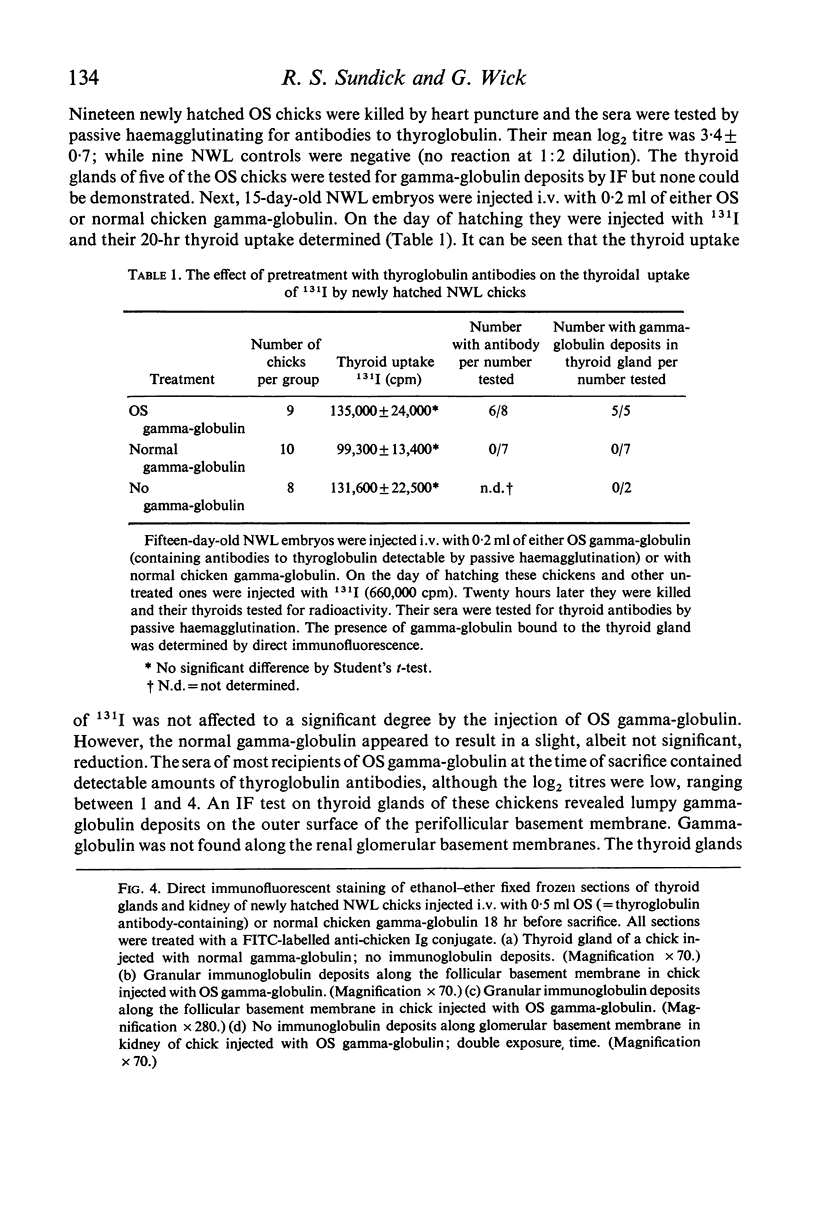
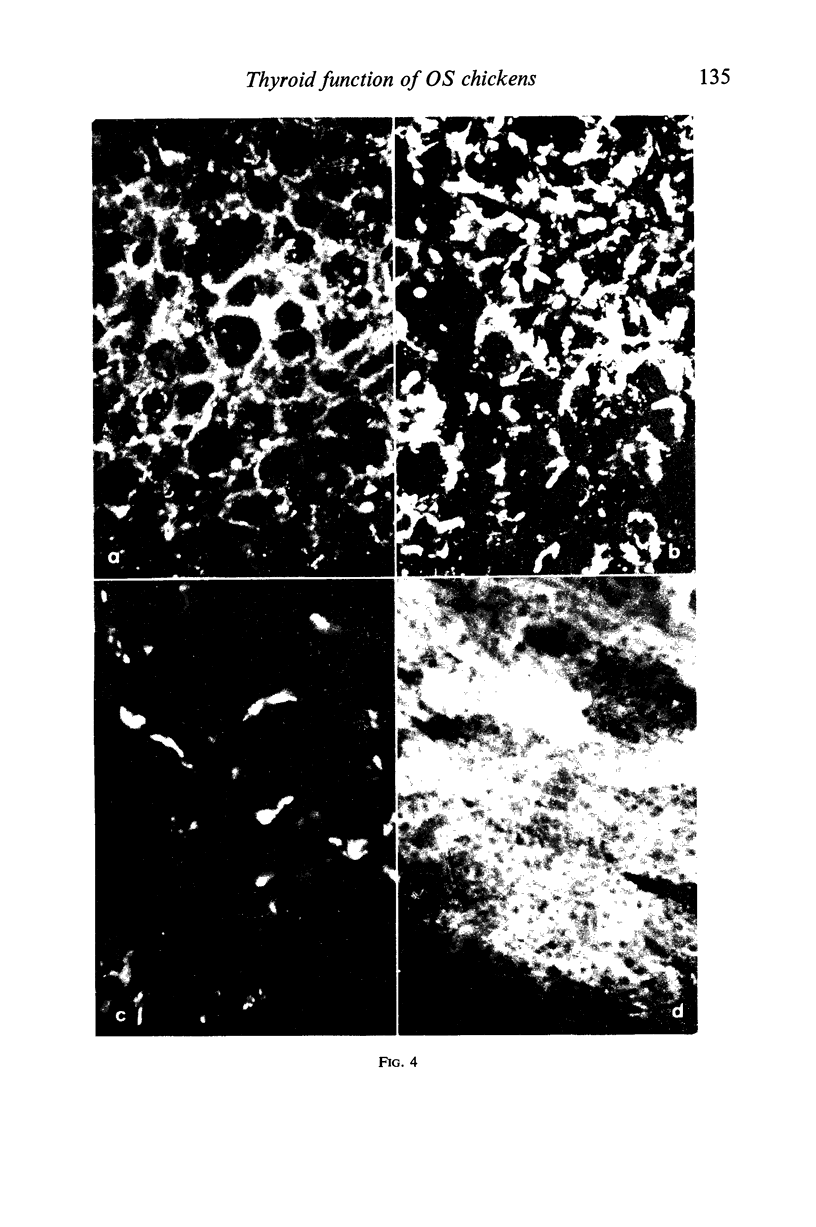
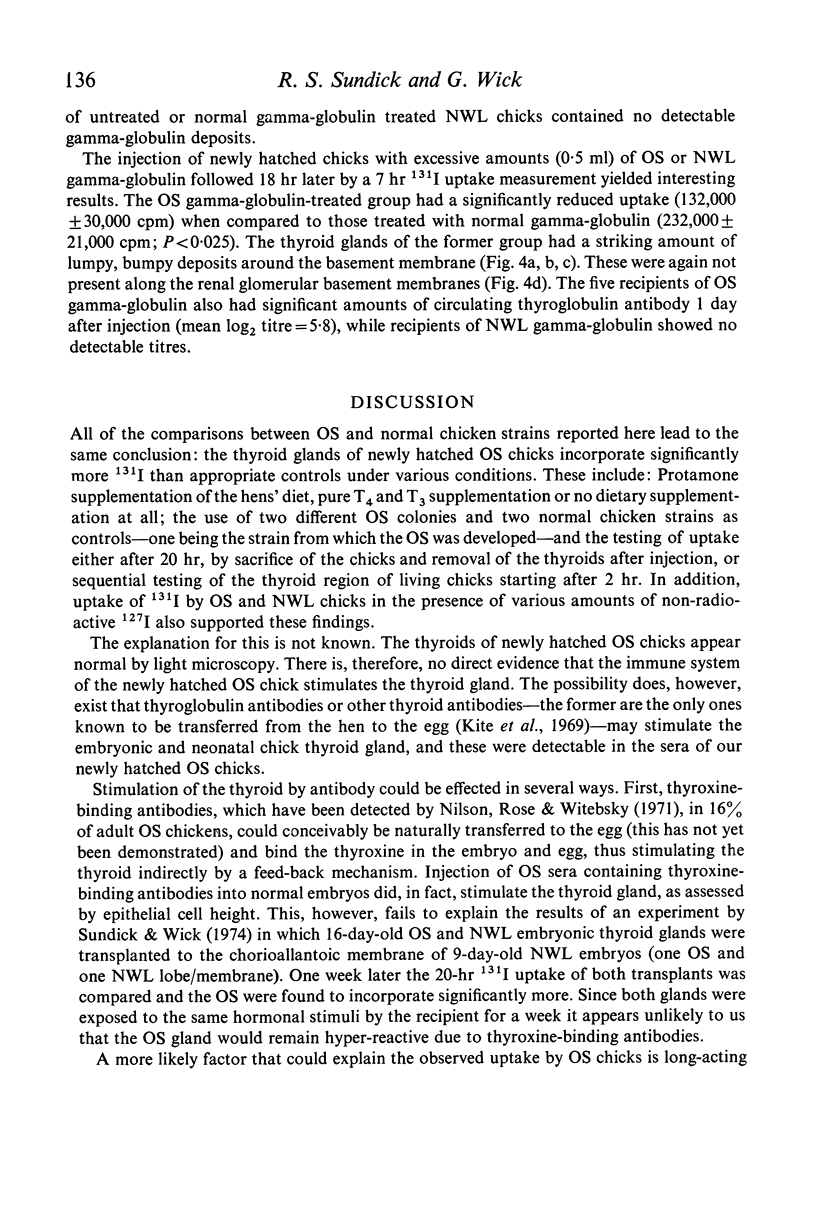
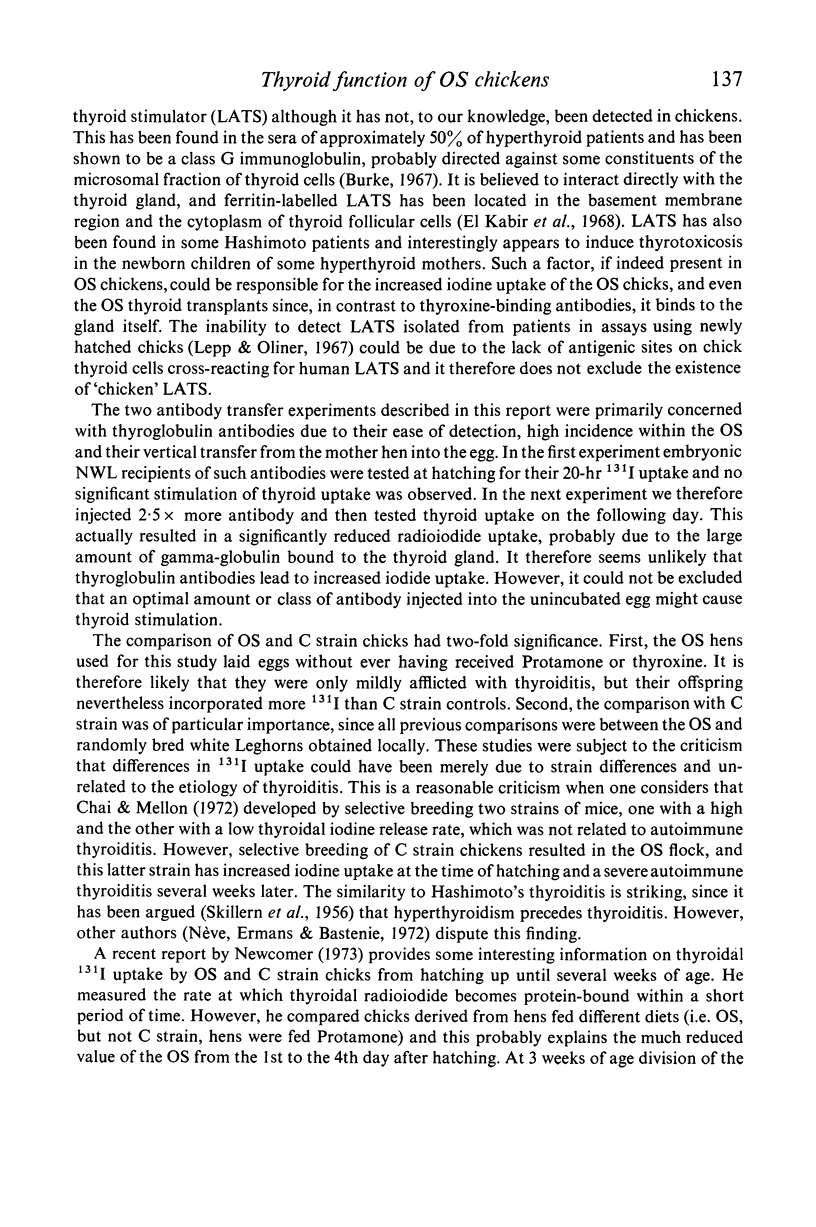
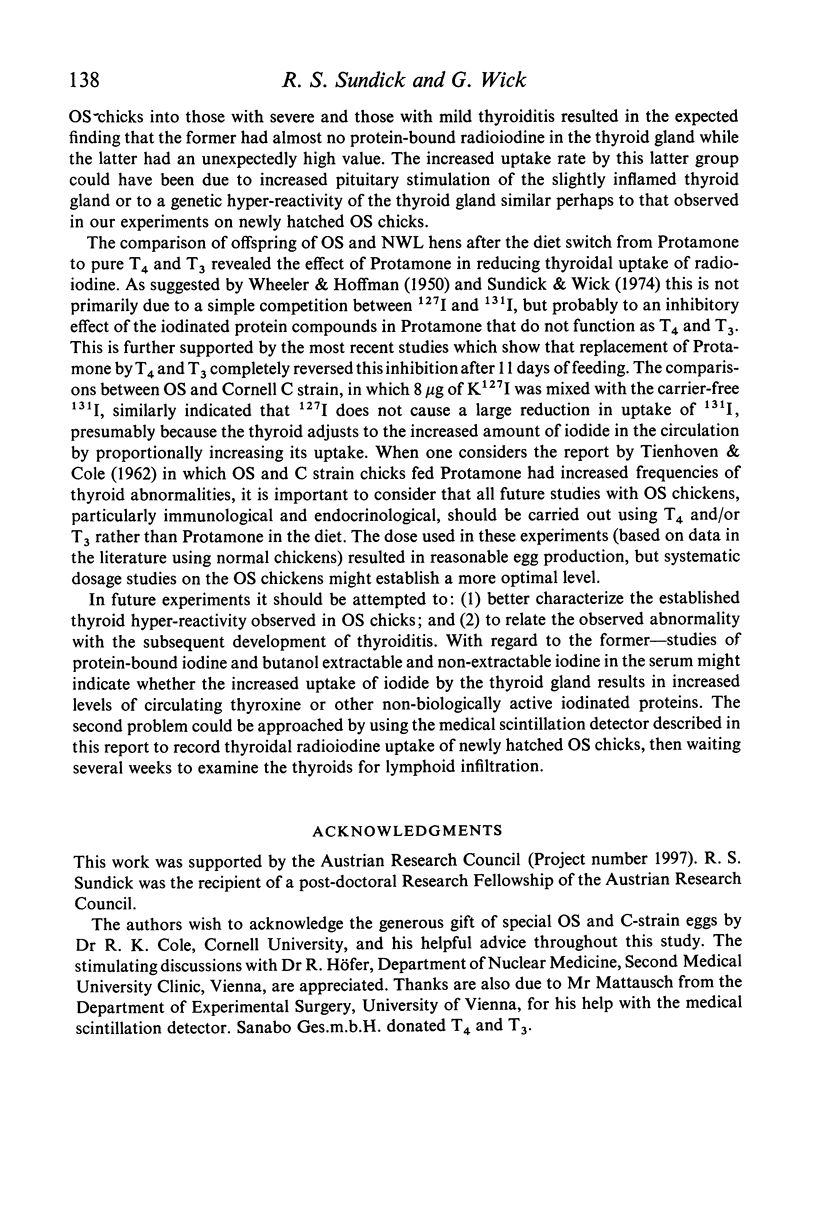
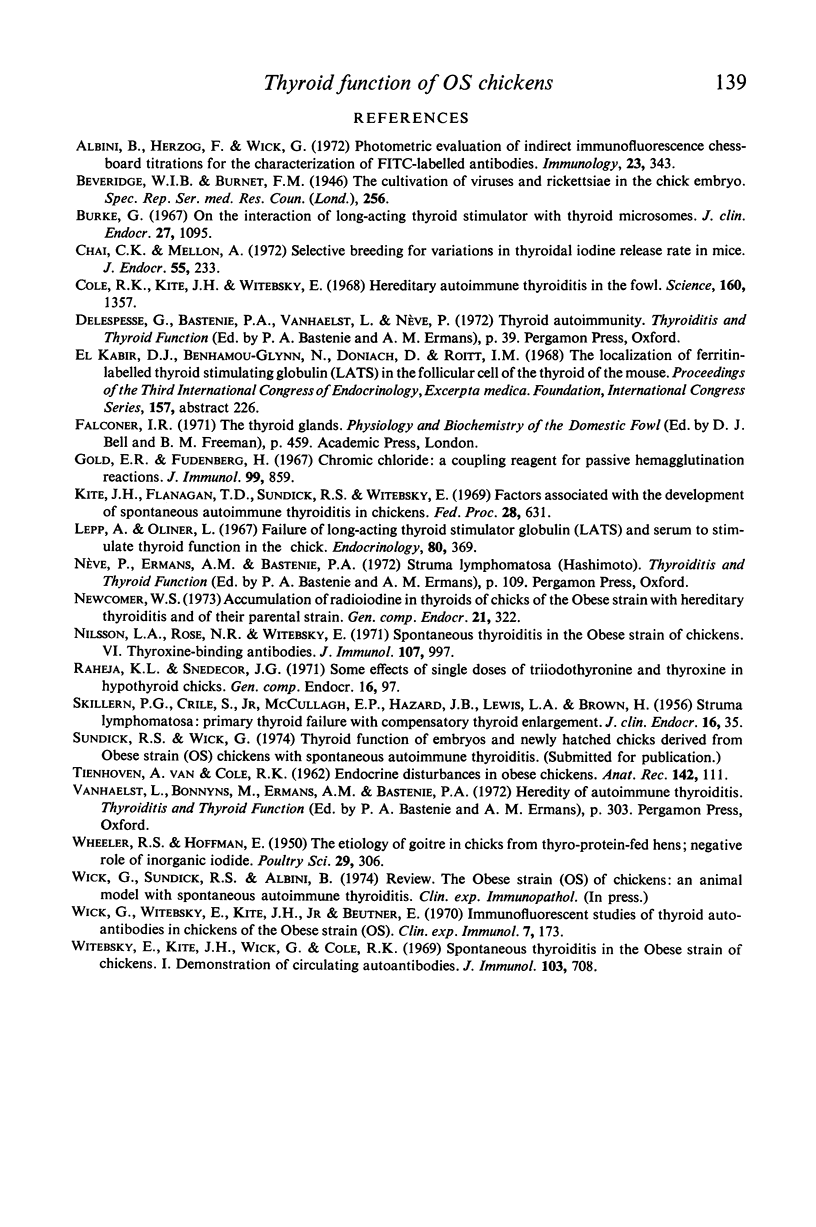
Selected References
These references are in PubMed. This may not be the complete list of references from this article.
- Albini B., Herzog F., Wick G. Photometric evaluation of indirect immunofluorescence chessboard titrations for the characterization of FITC-labelled antibodies. Immunology. 1972 Sep;23(3):343–354. [PMC free article] [PubMed] [Google Scholar]
- Burke G. On the interaction of long-acting thyroid stimulator with thyroid microsomes. J Clin Endocrinol Metab. 1967 Aug;27(8):1095–1102. doi: 10.1210/jcem-27-8-1095. [DOI] [PubMed] [Google Scholar]
- Chai C. K., Melloh A. Selective breeding for variations in thyroidal iodine release rate in mice. J Endocrinol. 1972 Nov;55(2):233–243. doi: 10.1677/joe.0.0550233. [DOI] [PubMed] [Google Scholar]
- Cole R. K., Kite J. H., Jr, Witebsky E. Hereditary autoimmune thyroiditis in the fowl. Science. 1968 Jun 21;160(3834):1357–1358. doi: 10.1126/science.160.3834.1357. [DOI] [PubMed] [Google Scholar]
- Gold E. R., Fudenberg H. H. Chromic chloride: a coupling reagent for passive hemagglutination reactions. J Immunol. 1967 Nov;99(5):859–866. [PubMed] [Google Scholar]
- Lepp A., Oliner L. Failure of long-acting thyroid stimulator globulin (LATS) and serum to stimulate thyroid function in the chick. Endocrinology. 1967 Feb;80(2):369–374. doi: 10.1210/endo-80-2-369. [DOI] [PubMed] [Google Scholar]
- Newcomer W. S. Accumulation of radioiodine in thyroids of chicks of the obese strain with hereditary thyroiditis and of their parental strain. Gen Comp Endocrinol. 1973 Oct;21(2):322–330. doi: 10.1016/0016-6480(73)90064-6. [DOI] [PubMed] [Google Scholar]
- Nilsson L. A., Rose N. R., Witebsky E. Spontaneous thyroiditis in the obese strain of chickens. VI. Thyroxine-binding antibodies. J Immunol. 1971 Oct;107(4):997–1003. [PubMed] [Google Scholar]
- Raheja K. L., Snedecor J. G. Some effects of single doses of triiodothyronine and thyroxine in hypothyroid chicks. Gen Comp Endocrinol. 1971 Feb;16(1):97–104. doi: 10.1016/0016-6480(71)90211-5. [DOI] [PubMed] [Google Scholar]
- SKILLERN P. G., CRILE G., Jr, MCCULLAGH E. P., HAZARD J. B., LEWIS L. A., BROWN H. Struma lymphomatosa: primary thyroid failure with compensatory thyroid enlargement. J Clin Endocrinol Metab. 1956 Jan;16(1):35–54. doi: 10.1210/jcem-16-1-35. [DOI] [PubMed] [Google Scholar]
- VAN TIENHOVEN A., COLE R. K. Endocrine disturbances in obese chickens. Anat Rec. 1962 Feb;142:111–121. doi: 10.1002/ar.1091420203. [DOI] [PubMed] [Google Scholar]
- Wick G., Witebsky E., Kite J. H., Jr, Beutner E. H. Immunofluorescent studies of thyroid auto-antibodies in chickens of the obese strain (OS). Clin Exp Immunol. 1970 Aug;7(2):173–185. [PMC free article] [PubMed] [Google Scholar]
- Witebsky E., Kite J. H., Jr, Wick G., Cole R. K. Spontaneous thyroiditis in the obese strain of chichens. I. Demonstration of circulating autoantibodies. J Immunol. 1969 Oct;103(4):708–715. [PubMed] [Google Scholar]


